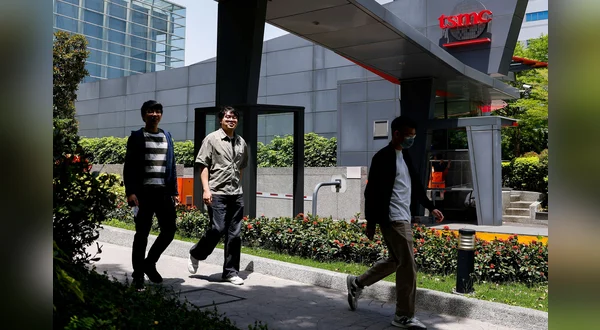Japan's $550B Trade Deal Boost: Could Fund Taiwanese Chip Giant's US Expansion?

Tokyo, Japan – A landmark trade agreement between the United States and Japan, worth a staggering $550 billion, is generating significant buzz, particularly within the semiconductor industry. According to Japan’s top trade negotiator, Ryosei Akazawa, a portion of this substantial investment package could be strategically channeled to support a Taiwanese firm establishing semiconductor manufacturing facilities within the United States.
The deal, finalized this week, aims to reduce trade barriers and foster economic cooperation between the two nations. While the full scope of the $550 billion package is still being detailed, Akazawa’s statement suggests a deliberate effort to bolster the U.S. semiconductor supply chain – a critical area of concern for American national security and economic competitiveness.
The move comes amidst a global race to secure advanced chip manufacturing capabilities. The U.S. has been actively pursuing strategies to reduce its reliance on overseas chip production, particularly from Asia, following supply chain disruptions highlighted during the COVID-19 pandemic. The CHIPS and Science Act, passed in 2022, allocated billions of dollars in subsidies and tax credits to incentivize semiconductor companies to build and expand facilities in the U.S.
Akazawa’s comments indicate that Japan is keen to play a collaborative role in this effort. By facilitating investment in a Taiwanese chipmaker’s U.S. operations, Japan could benefit from closer ties with both the U.S. and Taiwan, two key economic partners. The specific Taiwanese company hasn’t been publicly named, but industry analysts speculate it could be TSMC, the world's largest contract chip manufacturer, which has already announced plans to build a significant fabrication plant in Arizona.
Why is this significant?
- Supply Chain Resilience: Diversifying chip production locations strengthens the U.S. against future disruptions.
- Economic Growth: New semiconductor plants create jobs and stimulate economic activity in the U.S.
- Geopolitical Strategy: Reducing reliance on specific regions for critical technologies enhances national security.
- Japan-U.S. Partnership: The deal reinforces the strong economic and strategic alliance between Japan and the U.S.
The potential funding of a Taiwanese chipmaker’s U.S. expansion through Japan’s trade deal represents a strategic maneuver with far-reaching implications. It underscores the growing importance of semiconductors in the global economy and the concerted efforts underway to secure and diversify supply chains. As the details of the deal continue to unfold, the impact on the semiconductor industry, and the broader U.S.-Japan-Taiwan relationship, will be closely watched.
Further updates are expected as the agreement is formally ratified and implementation plans are finalized. The focus will be on ensuring transparency and accountability in the allocation of funds, and on maximizing the benefits for all parties involved.






